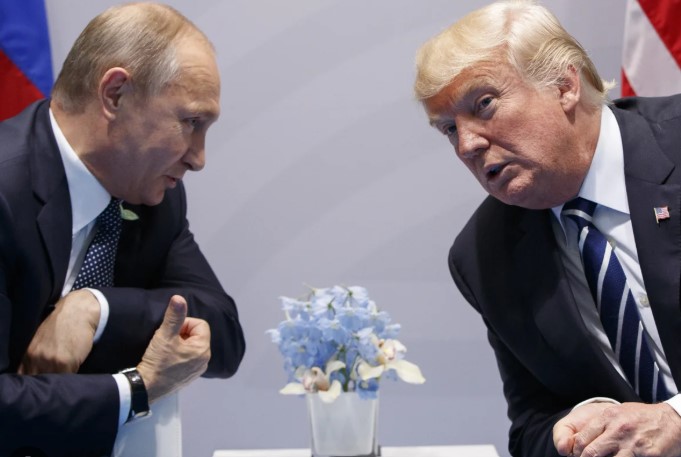Trump to Meet with Putin “Very Quickly” After Taking Office: A Diplomatic Reset with Russia?

As the world continues to watch the unfolding conflict between Russia and Ukraine, U.S. President Donald Trump has made waves by announcing his intention to meet with Russian President Vladimir Putin “very quickly” after assuming office. While Trump did not specify the exact timeline or location for the meeting, it is clear that he plans to engage with the Russian leader soon after his inauguration marking a potential shift in U.S.-Russia relations and a key moment in the ongoing war.
A Swift Diplomatic Opening
Trump expressed his eagerness to sit down with Putin, noting that the meeting would be the first between the two leaders since Russia launched its full-scale invasion of Ukraine in February 2022. Trump did not provide any details regarding the location or date of the meeting, but his words indicate that he sees this dialogue as essential to resolving the conflict that has gripped Europe for nearly two years.
“There’s only one strategy, and it’s up to Putin,” Trump said, emphasizing that he believes the Russian president is not pleased with the outcome of the war. “It hasn’t gone exactly well for him either,” Trump added, alluding to the setbacks Russia has faced on the battlefield. The former president went on to say, “I know he wants to meet, and I’m going to meet very quickly. I would’ve done it sooner, but…you have to get into the office. For some of the things, you do have to be there.”
Trump’s comments underscore the importance of direct dialogue between world leaders, especially as the war in Ukraine drags on, leading to mounting casualties and economic destruction on both sides. His statement reflects his belief in the power of personal diplomacy, something that has been central to his foreign policy approach in the past.
The Trump-Putin Dynamic: A Long History of Engagement
Trump’s upcoming meeting with Putin will mark the latest chapter in their long relationship. The two leaders have met five times in the past, with their most famous meeting taking place on July 16, 2018, in Helsinki, Finland. The Helsinki summit was widely criticized for its lack of transparency, as Trump and Putin spoke privately for over two hours with only interpreters present. Many critics accused Trump of being overly accommodating to Putin, especially in light of allegations of Russian interference in the 2016 U.S. presidential election.
Despite the criticisms, Trump has remained steadfast in his belief that engaging with Russia diplomatically is crucial. He has long argued that building a positive relationship with Putin is in the best interests of both the United States and global stability. His willingness to meet with Putin “very quickly” after taking office signals a continuation of this approach, even amid the ongoing conflict in Ukraine.
While Trump has not outlined the specifics of his strategy to end the war, he has consistently called for a swift resolution to the conflict. His stance contrasts with that of the Biden administration, which has provided substantial military and economic support to Ukraine in its defense against Russian aggression. Trump has suggested that his approach would involve negotiating a peace deal that satisfies both parties, potentially leading to a cessation of hostilities without the need for a protracted war.
As Trump prepares to take office for a second term, his plan to meet with Putin could serve as one of the first major diplomatic tests of his presidency. His promise to engage with the Russian leader “very quickly” after taking office underscores his commitment to securing a diplomatic resolution to the war in Ukraine. Whether this approach will be successful in bringing about peace, or whether it will face resistance from both within the U.S. and internationally, remains to be seen.
One thing is certain: Trump’s decision to prioritize direct dialogue with Putin sends a strong message that he favors diplomacy over prolonged conflict. With global tensions running high and the war in Ukraine continuing to escalate, it is clear that the world will be closely watching this crucial moment in U.S.-Russia relations.
